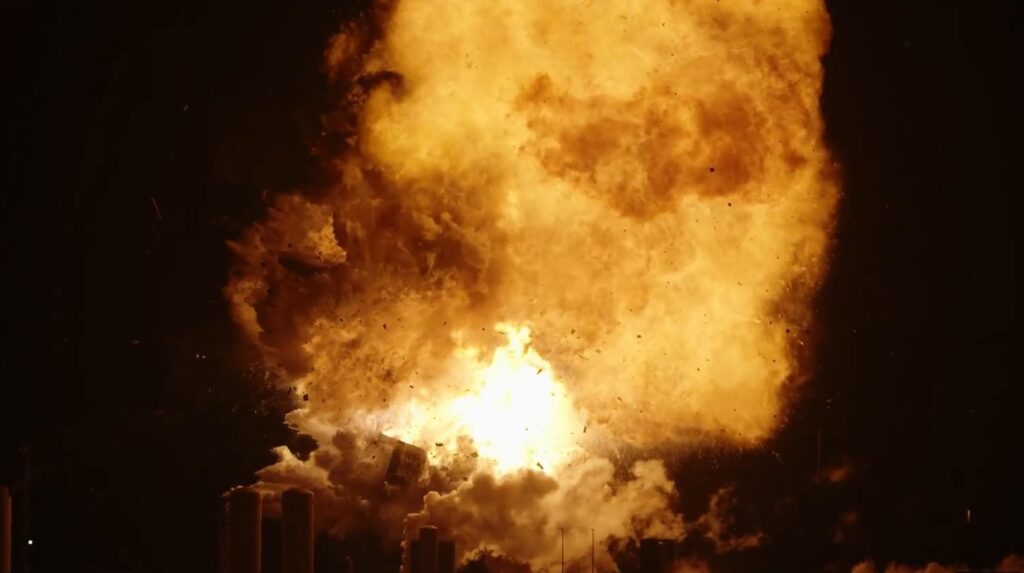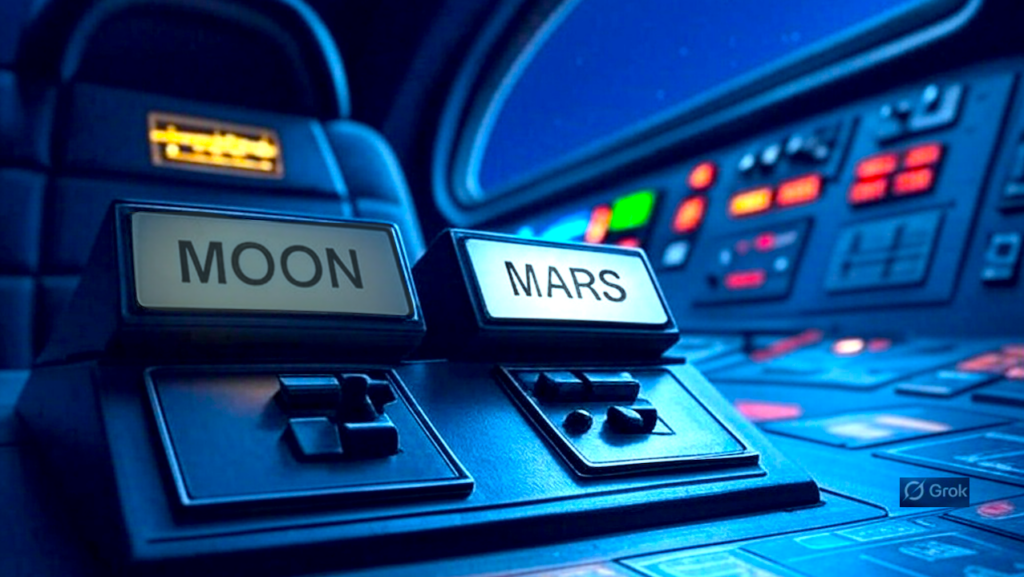NASA Offers To Pay Companies To Demonstrate Lunar Regolith Collection

Space Resources are the Key to Safe and Sustainable Lunar Exploration
“Today, we’re taking a critical step forward by releasing a solicitation for commercial companies to provide proposals for the collection of space resources. When considering such proposals, we will require that all actions be taken in a transparent fashion, in full compliance with the Registration Convention, Article II and other provisions of the Outer Space Treaty, and all of our other international obligations. We are putting our policies into practice to fuel a new era of exploration and discovery that will benefit all of humanity. The requirements we’ve outlined are that a company will collect a small amount of Moon “dirt” or rocks from any location on the lunar surface, provide imagery to NASA of the collection and the collected material, along with data that identifies the collection location, and conduct an “in-place” transfer of ownership of the lunar regolith or rocks to NASA. After ownership transfer, the collected material becomes the sole property of NASA for our use.”







![Human Landing System Post-Budget Tag-Up [Audio]](https://nasawatch.com/wp-content/uploads/2025/05/HLS-1024x562.png)

Great move!
The more I think about it, the more I think it only makes sense as a legal test case. The requirements seem to be all about a private company collecting a sample from a “celestial body” (specifically the Moon) and then selling it to someone (specifically NASA.) What the sample like (mass of the sample, its composition, etc), where on the lunar surface, or what the buyer does with it after purchase (pick it up at a later date or leave it on the lunar surface), don’t seem to be specified.
But we do have the perennial arguments over commercial extraction and sale of space resources, and whether or not the Outer Space Treaty allows it. (Which I do not want to restart…) This idea would involve a private company collecting material from the surface of a celestial body and selling it, and NASA’s terms for buying it require the whole process comply with the Outer Space Treaty. As soon as NASA buys even 50 grams of lunar regolith from a commercial source, it will establish the precedent that commercial companies can collect and sell material from celestial bodies while still following terms of the OST (if no one objects.) Or dump the issue on the courts (if someone objects), which would also produce a precedent once the courts rule on the case.
That sounds like a good idea. As I understand it, this is one of the things which make investment in space resource extraction seem iffy. The lack of legal clarity about owning and selling the extracted material makes investors nervous. By buying commercially extracted material, NASA would be forcing the issue and therefore forcing a resolution of this legal ambiguity.
> As soon as NASA buys even 50 grams of lunar regolith from a commercial source, it will establish the precedent that commercial companies can collect and sell material from celestial bodies while still following terms of the OST (if no one objects.)
I don’t think it does? I am not a lawyer, but nevertheless it is my understanding that is not how international law works. First someone would have to have standing to object, and second there isn’t a clock running on objections. NASA could do this, then 20-30 years later China or Russia or India do their own thing and ignore the OST and NASA’s precedent. Then it would be on NASA to object and take this to court in order to actually establish legal precedent. And for this to work as a legal challenge it would require actual harm done, like the other party bulldozing the lander or stealing the 50g of regolith out of spite or something, which probably won’t happen.
“I don’t think it does?”
It does not establish legal standing, until a court rules.
It *does* establish *precedent*!
The good news is that precedent is important in countries with a “common law” legal system. This makes things more predictable for running a Civil Society without continual State interference.
The bad news is that is not the legal system for the majority of the world. The majority are far closer to Code Napoleon, which is derived from the Codex of Justinian, As its imperial name implies, it gives far more importance to “force majeur” of the State.
This program is one more bid to begin building precedents inside the US, and in the Anglosphere, which mostly still accepts “common law” in large part. This is important since advocates of State dominance of Civil Society are attacking common law, and its limitations on State power every day, even in the US. Indeed, the very idea of Civil Society is one of the listed anathemas of the current PRC regime, as it makes clear that the State is *not* the whole of society.
Precedent is being used to firm up our side in the coming dispute, and its a good idea to do so, because the dispute will be long and hot!
*International law* does not operate according to common law principles though.
There is this thing called “customary international law” which basically says that international law can be inferred from how states have traditionally operated, even if the rules were not written down. This could work as a precedent of customary international law… if there was anything international about it. But it’s the US government buying Moon dirt from a US company, so nope on that front too.
Russia sold a part of its lunar samples to a private individual. It set a similar precedent.
Not necessarily, and certainly not in the public mind. It could be argued that those were samples collected by a government and collected for scientific purposes. The later sale was simply an expedient way for that government to dispose of samples they no longer needed for scientific purposes. No private company was involved (except, perhaps, as a purchaser) and the motive for collecting the samples was not commercial. Legally, that’s all irrelevant. But it might make a big difference to people who have an esthetic problem with commercial mining on the Moon. And I think those are the people who _want_ the OST to ban such things.
True on the collecting point. The auction at Southerby’s was arranged to make a point that it was legal for a private party to own a piece of the Moon. It was also arranged for the Lunokhod 2 rover and Luna 21 lander to be sold for a similar purpose, to show it was possible for hardware on the Moon to be privately owned. The sale was arranged in the UK so it could be used as a precedent in nations like the United States that follow the English legal tradition.
One step at a time.
The whole thing isn’t well-defined and I think taking action to force someone to clarify the situation is part of the point.
First of all, there can be a precedent if no one sues. But it isn’t a very firm one. At least in the US, the courts will not let someone off because someone else, in the past, got away with committing the same crime. But when it comes to something which has never come up before, which any enforcement of the OST would be, the courts would have to decide whether or not a certain action was a violation. A history of people taking that action and it never having been considered a crime, would definitely make a strong case for the defense.
That’s if it ended up in a US court. It would if it were a US citizen suing a US company or NASA. If it were a foreign citizen or government suing, I’m not sure where it would end up. The World Court would be a likely place, except for the fact that the US does not recognize the World Court.
Another issue you mentioned was someone having to be harmed. That’s true in US courts, although the exact rules for standing vary from state to state and from state to federal courts. I have trouble seeing how anyone would have standing to sue over this. Being a taxpayer and claiming the government is wasting your money doesn’t give you standing. The courts ruled on that a long time ago, and the harm has to be more specific and more directed at the person suing. The same would apply about the touchy feely phrases in the OST. But if it ended up in an international court of some sort, I have no idea what they’d require.
I am not sure why anyone would think it’s not legal for private firms to collect and sell extraterrestrial material. Both the Church letter and court cases have already established it, as did the sale of the Russia sample to a private party. The legal articles and reports on the OST were also clear on the legality of it. All the Space Resource Act of 2015 was codified it. It’s only been a handful of loud advocates for the Moon Agreement that created that myth to promote their agenda that it’s needed.
The problem is that the small handful can afford to be persistent, and want to be. They want private commerce confined to Earth. The 2015 Act is an ancillary target for them, but private commercial activity, not supervised with extreme care by “politically aware” government clerks is anathema for those in this crowd, … at least those I’ve met. They have been persistently active for decades. They seek to involve those countries who invest nothing in settling Space, because those will slow commercial activity.
I don’t think they can win. I do think they will form part of the opposition, with the PRC on their side. That combination will try to create a roadblock, similar to the use of “multilateral” recently coming to mean “There is no agreement till China agrees”.
The PRC wants to mine the Moon on its own and has no incentive to sign the Moon Agreement.
I suspect most people are either thinking in terms of personal experience rather than law, or just don’t like the idea of commercial use of extraterrestrial resources and want to _find_ an interpretation of the OST which supports that view. In terms of personal experience, I don’t think there is any in the US where you can dig a hole in the ground without getting someone’s permission, let alone sell whatever you dig up. (Yes, I know how much federal land there is, and you could probably dig a hole in lots of places without getting caught, but technically I think you’re supposed to ask the BLM first…) From that point of view, it’s natural for people to assume you need to ask for the owner’s permission before digging things up on the Moon, and if there can’t be an owner according to the OST, then of course you can’t do that. (Also note that this involves some confusion about territorial claims by a nation, which the OST prohibits, and ownership of property.) Overall, I think Mr. Bridenstine made a good analogy when announced this initiative (although it may not be original). He said, “You do not own the ocean, but you own the tuna.” But that’s not how most people intuitively think of property, mining and mineral rights.
Interesting to see how this will pan out later this century. Before there was no concern of about lunar material as only two sources US Apollo and Russian lunar rover, both centrally controlled and carefully documented. But proliferation of lunar missions by commercial and other countries… just saying.
I thought the US owned the Moon already. We planted the first flag.
LOL! No.
I haven’t read the OST in a while. What, specifically, is NASA asking the companies to adhere to in the OST? It is not like any company will be claiming the Moon, or that little part of it where they are located. They will just land and grab some dirt and give it to NASA.
The potential for trouble I see is the wording in the RFP where it says “transfer ownership” of the dirt to NASA. That implies that the company owns the dirt it collected until the transfer takes place. It has been pointed out that the OST allows this, but I can still see somebody objecting. We’ll see if this happens or not.
There also has been talk about taking any issues to court. Which court has jurisdiction? Also, if a court rules, will the losing side recognize that they are under that court’s jurisdiction? I look to the recent example of the CCP’s reaction to the ruling against China in the South China Sea dispute. Is this an indication of things to come?
This (and a few other reasons) is why I am pessimistic about the OST’s long term survival as a guideline for the rules governing countries (not to mention corporations) expanding into space.
In the United States treaties become part of federal law and since NASA is a federal agency it would be governed by federal law as would any company that is a US company and so it would be settled in federal courts. Internationally the only provision the OST has for issues like this are negotiations between the nation involved in the action and the nation(s) that object to it. The Artemis Accords are seeking to provide a framework for those types of discussions.
In terms of Outer Space Treaty provisions, the company collecting the regolith would have to be sure it didn’t interfere with other people’s activities, disturb historic sites, and a few other things like that. But I think NASA is calling out the requirement to follow the OST for a reason. If it’s about establishing a precedent, they would want it to be very obvious that collecting and selling regolith _does_ obey the OST, and they’d want to emphasis that point by specifically mentioning how the effort must follow the OST.
As far as suing and which court has jurisdiction, Dr. Matula is correct about a suit by a US citizen. As a ratified treaty, the OST is what the Constitution calls the “supreme law of the land” (along with the Constitution itself.) So a suit by a US citizen over the OST would go to a US federal court. Which one would depend on the case, and whether the company or NASA was being sued. I have trouble imagining how someone would have standing to sue, but that’s a separate issue.
That is all well and good for purely domestic disputes. However, I was referring mainly to disputes that are international in nature. It’s fine to say that the two countries involved (if indeed it is just two countries involved) will “negotiate”, but at some point one country or another will say, “we are in the right, period” and dig in their heels. And yes, I do think that, sooner or later, that will be a realistic scenario.
I understand and agree with NASA trying to set a precedent. I just hope all the other countries see it that way as well.
And there you have the weakness of the treaty system. Nations may negotiate, they may even take it to the UN, but there is no practical way to enforce a ruling as we see with China in the South China Sea and many other examples of disputes.
BTW the Cosmos 954 crash is a good example. Here is a detailed legal article on it from the Yale Library that serves as a preview of how incidents on the Moon may be handled under the existing space treaty system.
https://digitalcommons.law….